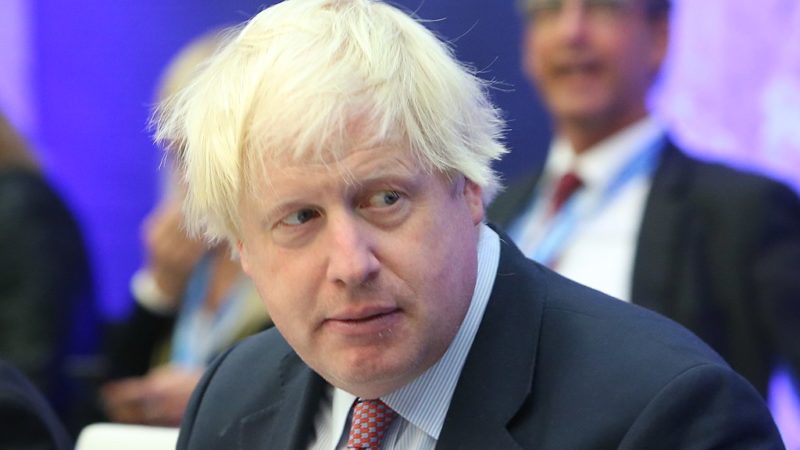It would damage the economy.

Even a “relatively benign” no-deal Brexit scenario would make the UK permanently poorer, push the country into recession and increase government borrowing.
These are the claims made by the Institute for Fiscal Studies (IFS) in a recent media briefing, based on analysis from the Treasury’s Office for Budget Responsibility.
“A disruptive ‘no-deal’ scenario would blow a hole in the public finances
that in the long term would need to be filled through some combination of tax rises and spending cuts,” the briefing said.
The briefing says that, even if it goes as well as it can, a no-deal Brexit would increase borrowing costs by about £30bn a year from next year onwards.
To put that £30bn in context, total health spending in England is about £130bn a year.
Johnson’s government’s spending pledges on the NHS, defence, aid, schools, further education and the police add up to about £9bn a year.
As well as damaging public finances, Brexit is likely to mean that more needs to be spent in certain areas, the IFS said.
For example, if HMRC are tasked with increasing customs checks, they will need a bigger budget.
If DEFRA has to create and maintain farming and fishing regimes, it will need more staff and a bigger budget.
While money has been allocated to these departments for Brexit preparations, a no-deal Brexit would mean they need more money on a permanent basis.
The government has said it will shut down parliament to limit the time MPs have to try and stop a no-deal Brexit.
The opposition parties, as well as some Conservatives, are trying to pass a motion asking the government not to leave the EU without a deal.
Unlike some other think tanks, the Institute of Fiscal Studies declares who funds it on its website and is considered transparent by the ‘Who Funds You’ campaign.
Left Foot Forward doesn't have the backing of big business or billionaires. We rely on the kind and generous support of ordinary people like you.
You can support hard-hitting journalism that holds the right to account, provides a forum for debate among progressives, and covers the stories the rest of the media ignore. Donate today.




2 Responses to “No deal would make the UK permanently poorer, says think tank”
Alasdair Macdonald
I think you should give a cautionary ‘health warning’ before quoting selectively from any report by the Institute for Fiscal Studies, because it is essentially ‘Reaganomic’ in its assumptions and is very secretive regarding who provides its funding.
The great majority of the population is going to be poorer for a long time after any Brexit, because Brexit is about disempowering the great majority of us so that the globalised financial elite, which clearly runs this government and which has been exerting growing power over Westminster and Whitehall since the Callaghan Government ended the ‘post war consensus in 1978. Blair and Bodger Broon mendaciously continued this despite their claims to the contrary. With Blair, most of us knew which side he was really on, but Broon was ‘sleekit’ and has behaved like a Quisling to the many decent people who voted Labour and sincerely believed him.
Patrick Newman
Alasdair, I think you are confusing the IFS with the IEA. See this from their website:- https://www.ifs.org.uk/about/finance My issue with them is they just good public sector accountants and not too good on macro-economics. So perhaps they should be called the Institute for Monetary Studies!